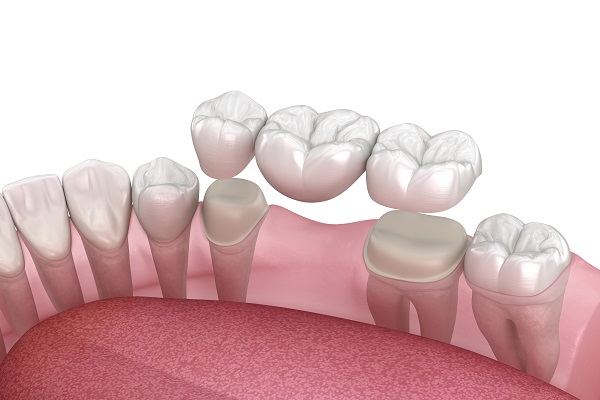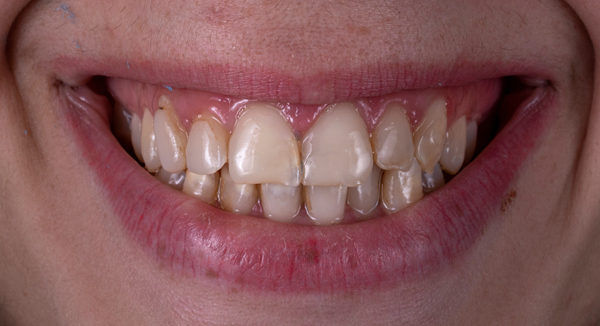Getting a Dental Bridge with Your Supporting Teeth

A dental bridge is an option for those who have lost teeth and need to fill in that space to complete their smile or bite. The procedure involves crowns being placed on supporting teeth (known as abutment teeth) that are fused with your missing tooth or teeth by what's called an implant post. The tooth-replacement option, known as a pontic, is then cemented into place on top of these crowns to complete your new smile. Please keep reading to understand what a bridge is, who should get one, and what it's like.
What is a dental bridge?
A bridge is an indirect form of replacement for missing teeth. This option may be better than removable dentures in certain situations, such as when one or more of your teeth are slightly longer than others. Bridges use natural teeth on either side of a gap to anchor artificial replacement teeth in place.
With bridges, you'll have teeth on either side of your missing tooth that is fixed in place. On one side, a dentist will fabricate two crowns for two teeth—one in front and one behind. Then they will attach artificial teeth to these crowns. On the other side of your mouth, there will be another pair of false teeth permanently bonded onto two natural teeth.
Why get a dental bridge?
A bridge might be your best option if you have one tooth that's damaged or decayed, but all your healthy teeth are still in place. Bridges are relatively easy to maintain and can give you back many of your natural smile's characteristics—they're also often less expensive than full dentures.
This can give you back a lot of your old smile's characteristics. In some cases, you won't even need to make any major changes to your current bite. The dentist will build your bridge so that it fits on top of your healthy teeth, securing it with metal clasps that attach to existing teeth or implants. The dentist might also recommend having some slight alterations made to your bite.
Is there any pain after?
You may have some soreness and discomfort after receiving your new bridge. This is normal, as you are working with your jaw to adjust. To help speed up your recovery time and make you more comfortable, consider taking over-the-counter pain relievers like acetaminophen or ibuprofen after you get your new bridge in place. It's also important that you regularly brush and floss your teeth during recovery. Remember, it's normal to experience some soreness after getting a bridge replaced, so relax and allow yourself time to adjust.
Learn more from your dentist
A bridge is made from biocompatible materials and can be expected to last for years. Because bridges connect two natural teeth, they look like your own teeth, which makes them perfect for improving your smile. However, a bridge requires careful planning and professional execution to last. It may take multiple visits before you can get one installed. Take time to learn about them, so you're confident in deciding whether it's right for you.
Request an appointment here: https://www.timsmithdental.com or call Tim Smith Dental at (903) 592-5934 for an appointment in our Tyler office.
Check out what others are saying about our dental services on Yelp: Dental Bridges in Tyler, TX.
Recent Posts
A dental bridges is a method of teeth replacement that involves the attachment of a dental crown (or multiple dental crowns that form a bridge) and abutment teeth. An implant-supported bridge may also be an option, which is a bridge supported by implants rather than natural teeth. Regardless, keeping the dental bridge clean is essential. Patients…
One of the most common dental procedures that general dentists offer is a dental bridge. This is a method of teeth replacement that replaces one missing tooth or a section of missing teeth. A dental bridge most notably addresses a cosmetic concern, but it may offer functional and oral health benefits as well. It is helpful…
A dental crown usually lasts for many years. But it can become loose or fall out before it is supposed to be replaced. If your dental crown becomes dislodged or falls out, it is crucial to know how to handle the situation. Read on to find out what to do if your crown falls out.A…
For patients that find out they will need a dental crown, one of the first questions is typically regarding how the tooth will look once the procedure is done. However, nowadays it is much simpler to fix any dental issue and not have anything noticed in your mouth by friends or family. This gives the…


